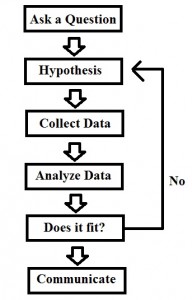What criteria do you use to judge the validity of scientific claims? Scientific writing should objectively give out information to readers rather than attempt to persuade them. As the roles of scientific claims are answering research questions and serving as the main point of a report, it must be reviewed with reasons and criticality rather than with opinionated arguments. Thus, a good scientific claim should include objectivity, validity of reasons, and authenticity of the evidence; these criteria help the claim to stand without bias or subjectivity, to be proven with validity and the credibility of the claim.
Objectivity is one of the important components of a good scientific claim because it allows readers to take the claim without bias or subjectivity. If a scientific claim contains any particular bias, it can lead the claim subjugated to prejudice. For example, it is recommended to research and to refer to a variety of information sources that embrace different opinions towards the topic in the discourse. Without objectivity, readers are often misguided that one-sided opinion is a valid criticism.
Without valid reasons, scientific claim would not be able to prove anything. Scientific writings always have to include valid reasons that justify the claim’s position amongst many others. For example, if your claim argues that garbage patch has adverse effects to seawater, you should provide a constructed reason that plastic, the majority of the garbage patch, releases toxins into the water, instead of arguing without the valid reason that garbage pollutes water.
Furthermore, the reasons that support the scientific claim have to be validated by empirical evidences. The reasons cannot stand alone without the evidences that prove the credibility of the claim. Authors can authenticate the reasons by using data or statistics as reliable sources of evidence. For example, if you write a report about the negative effects of Pacific Garbage Patch on environment, a published data on the toxic chemical concentration of seawater would successfully support the claim.
Scientific writings play an important role in informing and educating the public. Hence, they have to present their positions with objectivity, validity of reasons, and authenticity of the evidence. Without accomplishment of these three conditions, a scientific writing becomes null.
“Social Complexity and Scientific Validity” by Dave Wiley
YouTube video courtesy of: TEDx Talks
InHye(Lisa) Kim



